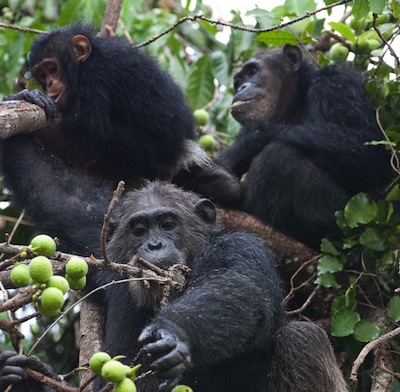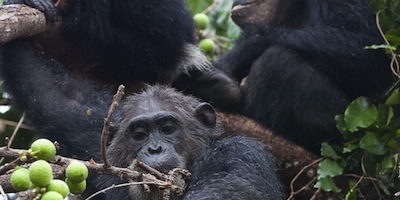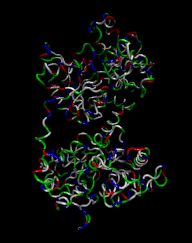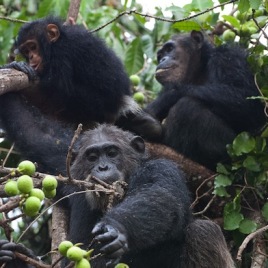
An adult female chimpanzee (top, right) and 2-year-old son (top, left) feed alongside a former alpha male (bottom). A new study suggests that mother chimps give their sons more social exposure outside of the family than they give their daughters. (Photo credit: Ian Gilby, Arizona State University)
Among wild chimpanzees, mothers of sons spend more time interacting with other chimpanzees than mothers of daughters, according to a new study.
In early infancy (0-6 months) when an infant is in almost constant contact with its mother, mothers of sons spent more time socializing with non-immediate family members than those with daughters. Additionally, mothers of sons spent more time socializing with both genders than those with daughters.
The differences in socialization mean that male infant chimpanzees receive approximately two hours more each day in social exposure time with non-immediate family members, a nearly 25 per cent increase.
The authors suggest that mother chimpanzees vary their behaviour in a way that foreshadows gender differences in adult chimpanzees.
Original research paper published by PNAS on November 24, 2014.
Names and affiliations of selected authors



